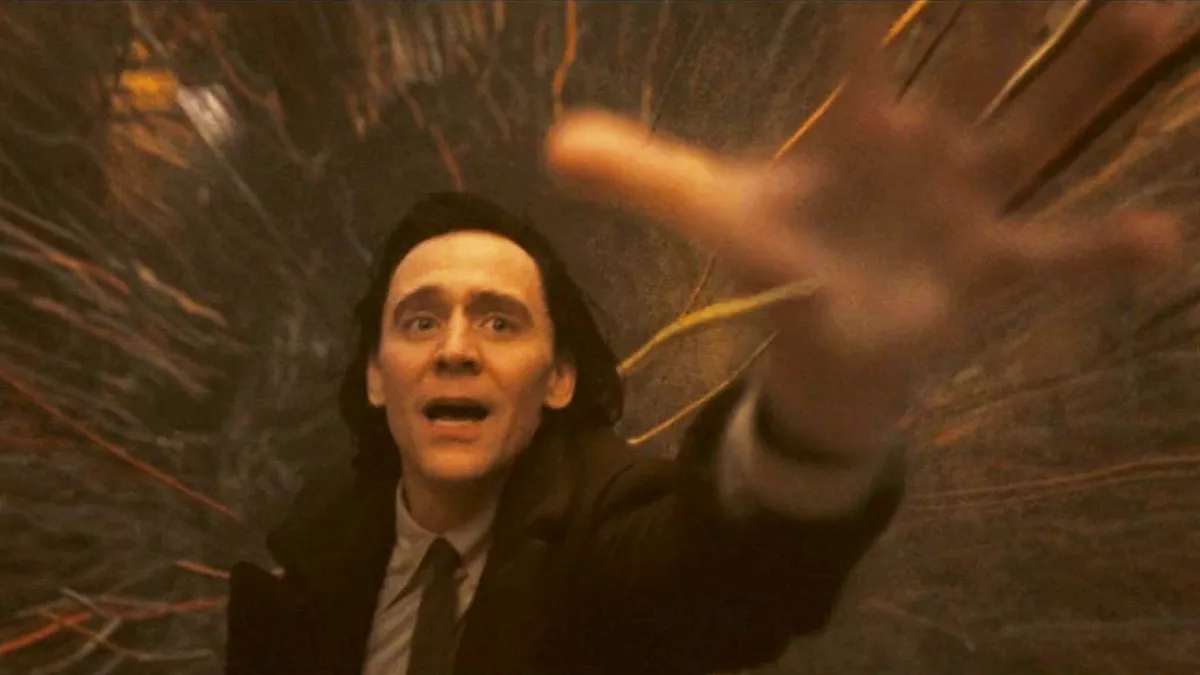After a near-record-breaking more-than-one seasons on Disney Plus, Loki very much seems to be over.
It was a good run. We had some laughs along the way. Distracted by a comic book hero trapped in a Wes Anderson-inspired sci-fi bureaucracy, fans were constantly sideswiped by feelings-charged storytelling, culminating in a finale that totalled our collective emotional Chrysler LeBaron. Against all odds, in a cinematic universe built as a narrative pyramid scheme in which every story has to set up three spin offs before the end of its runtime, Loki simply ends: Quiet, redemptive, with the grace and elegance to make you believe that this was always what this story was building to, even the parts in Thor: The Dark World.
But denouement isn’t a phenomenon to which MCU fans have been acclimatized. If you finished Loki and need a chaser, there are plenty of options. You could read Neil Gaiman’s Norse Mythology and learn about how Loki’s self-sacrificial relegation to the cosmic tree league mirrors the actions of Odin. If you feel like you’re going to miss Loki too much, you could watch a video of a horse giving birth — the mythological Loki gave birth to a horse, and nothing will help you get work through the character’s absence more than having a good idea of what that would have looked like.
Or you could check out one of the following three options, any of which would pair nicely with the Loki finale “Glorious Purpose.”
The Fountain
Between walking against cosmic forces hellbent on changing his outfit, and the decision to sacrifice himself and become a space tree, Loki’s final moments didn’t just inspire tears. They also made a specific, insufferable group of movie fans mutter “Hugh Jackman did that in 2006.”
The Fountain was a wild movie. Made by Darren Aronofsky back before people got serious about handing him lots of money, it was a project built on enthusiasm and creativity. Viewers spend a lot of time getting uncomfortably close to Rachel Weisz’s face, and looking at the inside of a baboon’s head. It wasn’t for everyone. Some people loved it.
And it feels like a good bet that the people behind Loki were among that number. Told out of order across a thousand years, The Fountain tells the story of a man coming to terms with self sacrifice as a means of creation. Like “Glorious Purpose” and its bizarre, visually poetic choice to let its hero grab time itself in his hands, it abandons logic in favor of story, leaving the literal interpretation of events up to the viewer. Importantly, it also concluded with a man floating in space, becoming a tree in order to preserve existence. Bonus points: Clint Mansell’s haunting, cello-heavy The Fountain score pairs like fine popcorn and exquisite lager with Natalie Holt’s unreal, stunningly beautiful string compositions for Loki.
Groundhog Day
This one is cheating. There’s no wrong reason to watch Groundhog Day. It’s the time loop movie so ubiquitous that you can’t talk about time loops without bringing it up.
And there’s a good reason for that. Sure, other shows and movies like 12:01 and The Girl Who Leapt Through Time had used the idea of a sisyphean trudge through an endlessly repeating day before, but the Bill Murray comedy knocked the genre out of the park, somehow managing to balance wacky hijinks and suicidal depression without ever seeming muddled. Like Loki, it doesn’t bother with exact labels — a “Centuries Later” title card would have fit pretty naturally in the movie — and sees its hero excelling not through excellence, but through hard work, resilience, and untold years of exhausting loneliness.
Any YouTube video about kintsugi
You probably know about this already. There’s this artform in Japan that over-the-top, metaphor-addicted screenwriters really like to talk about in their award-eligible scripts: kintsugi. You’ll get why they like it in a second.
It’s the process of taking a broken ceramic object and piecing it back together, using tiny amounts of gold to hold the cracked pieces in place. The result is striking, and it makes for great narrative shorthand for the beauty of redemption: Something was trash. Now look how it shines.
It’s also pretty inescapably the inspiration behind a couple of designs in Loki — He Who Remains’ handheld time device, but more importantly, Loki’s crown in the final moments of the series. Charcoal gray with cracks running through it, it seems held together by veins of gold. It’s like the timeline, and like Loki himself: Shattered, worthless, until it’s put back together as something more beautiful.
